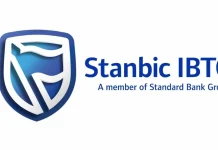With the International Monetary Fund throwing its weight behind the Central Bank of Nigeria’s plan to shift policies supporting foreign exchange restrictions and devaluation, stakeholders raise alarm over the nation’s economic outlook.
The Monetary Policy Committee of the CBN spread panic on Tuesday when it released a communique hinting at long periods of harsh economic downturn following low receipts from oil revenue.
As crude oil prices level at $30.05 per barrel and tight regulations clamp down on foreign exchange liquidity, analysts have expressed further concern over the CBN’s refusal to adjust the naira to reflect market rates in order for businesses to cut losses.
Bismark Rewane, chief executive officer of the Financial Derivatives Company told Bloomberg that the “currency is being put under pressure and is misaligned. Ghana and South Africa have already moved to equilibrium but Nigeria has not really accepted that the currency is in disequilibrium”
While stakeholders call for a free-float of the naira, players in the market sector have also highlighted the need for ease of access to sourcing foreign exchange to service international obligations.
The CBN which recently halted dollar sales to non-banking fiscal operators, has further refused to review the status of naira in a move that worsens the FX liquidity of financial institutions and has businesses struggling to find dollars on the parallel market amid tight liquidity.
Addressing the issue, Kushal Dutta, Managing Director of Jovago Nigeria said, “For a dollar-denominated economy, access to foreign exchange is critical to personal and institutional financing especially in light of the prevailing economic realities in the country.”
According to Dutta, “Early performance indicators show us that the trade sector is observing a sharp drop in cashflow. At the moment, investors are seeking instruments that can accommodate dollar receipts but if the restrictions on FX trade continue and the value of the naira continues to spiral out of control, businesses will be faced with significant risk and engagements in offshore transactions will be limited.”
As the market prepares for an economy crunch, the CBN further imposed a N50 stamp duty charge on deposits made in non-salary bank accounts across the nation.














RT @BizWatchNigeria: Economic Uncertainty Looms as CBN Predicts Tough Times – https://t.co/aQlrWQBshF https://t.co/SpMrpIOZqR